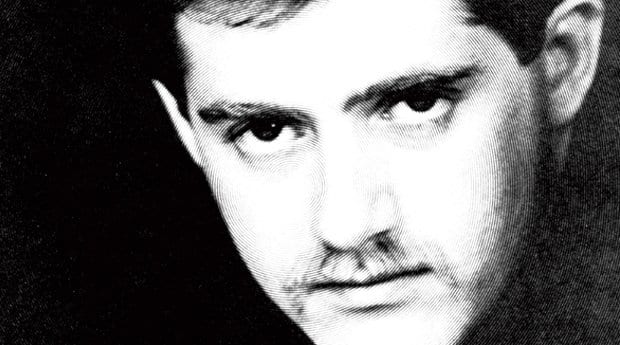Patrick Cowley defined the hi-NRG dance sound of the early 1980s with his exuberant hits “Menergy” and “I Wanna Take You Home.”
The San Francisco disco producer’s window of creativity, sadly, was very brief — he was an early victim of AIDS, dying in 1982 at age 32 — but his influence lives on through such classic club jams as Sylvester’s “Do You Wanna Funk,” Paul Parker’s “Right on Target,” and his 18-minute remix of Donna Summer’s “I Feel Love.”
An introverted character who spent his days in the studio and his nights in the bathhouses, Cowley has since become a revered figure among San Francisco DJ collective Honey Soundsystem.
Every October, the group throws a party in celebration of Cowley’s Megatone Records label, but this year the event doubled as the album release for School Daze, a collection of Cowley’s long-lost work for gay-porn soundtracks.
Released via Honey member Josh Cheon’s boutique imprint Dark Entries Records, School Daze provides a glimpse of the late producer’s darker, cerebral side. The songs, recorded between 1973 and 1981, range from squiggly cosmic soundscapes to hyped-up punk-funk and sparse prototechno.
Cheon, who hopes to make a documentary about Cowley, first heard about the porn music at Honey Soundsystem’s Megatone party in 2009.
That year, the collective had unearthed and reissued Catholic, a previously unreleased 1976 album by Cowley and Indoor Life vocalist Jorge Socarras. Cheon was in charge of interviewing Cowley’s friends and family for audio stations set up at the album release. Through those interviews he started to get a sense of the reclusive producer’s personality and work ethic.
“He was in the studio all day, every day. He would smoke a lot of pot and get lost in his compositions,” he explains. “I found this rich music history connected to the jazz scene, Sylvester and the new wave scene. Eventually, the porn music came to me.”
In 1981, John Coletti, head of gay-porn producer Fox Studios, contacted Cowley and asked him to compose music for his films. Cowley sent him reel-to-reel tapes of unreleased ambient work he’d created in college, which Coletti then synched to the on-screen action. Coletti loved the music so much he later asked Cowley to compose original material.
“John was in love with Patrick’s music,” Cheon says. “He would call Patrick on the phone when he was sick — when he didn’t want to do anything — and John would give him a boost. He’d say, ‘Hey! I’m down here in Miami and there’s all these hot muscle guys everywhere and I’m thinking of you! And you have to do this with the next song!’”
At the 2009 Megatone party, Cowley’s friends kept asking after the porn soundtracks. Intrigued, Cheon hit Google and eventually tracked down Coletti in Los Angeles using an address on an old videotape. He flew to LA, picked up the reel-to-reel tapes from Coletti’s garage and returned to San Francisco, where he restored and digitally transferred the recordings at Berkeley’s Fantasy Studios.
“This music reopens a window to the trailblazing scene San Francisco had in the ’80s where everyone was looking to San Francisco for the next big disco hit,” Cheon says.
For dance-music nerds, School Daze is tantalizingly suggestive of how Cowley’s sound might have developed.
“The track ‘Pagan Rhythms’ was one of the first tracks we heard that made us realize Patrick was tapping into this future techno and house sensibility,” explains Honey Soundsystem member Jacob Sperber (aka DJ P-Play). “It really does sound like a house track way before a house track really was something people understood as a musical genre.”
School Daze offers a chance to consider the music in the context of Cowley’s contemporaries, such as Giorgio Moroder and Wendy Carlos, as well as his own life. The sprawling dreamlike tracks could reflect Cowley’s experience in the bathhouse scene in the late 1970s, while the psychedelic flourishes likely connect to the jazz session players he often recruited for his 12-inch disco singles.
Sperber also sees Cowley as a rare example of an out queer musician who succeeded in the pop mainstream without hiding his sexuality.
“Not to say that Patrick Cowley was the next Elton John or Liberace, but, for the people who roll in circles like I do, he could’ve been that person who continued to move up and work with bigger artists,” he suggests. “Most likely, he would’ve brought some queers with him. I don’t know if that’s a lot of future projecting, but it’s important to consider this guy as another story that hasn’t been told.”
To purchase School Daze, go to darkentriesrecords.com.

 Why you can trust Xtra
Why you can trust Xtra


